Folate is essential during pregnancy, known for its role in preventing neural tube defects, congenital heart disease, and other birth defects in the developing fetus. Yet, the potential link between folic acid supplementation and gestational hypertension remains an area of active scientific inquiry.
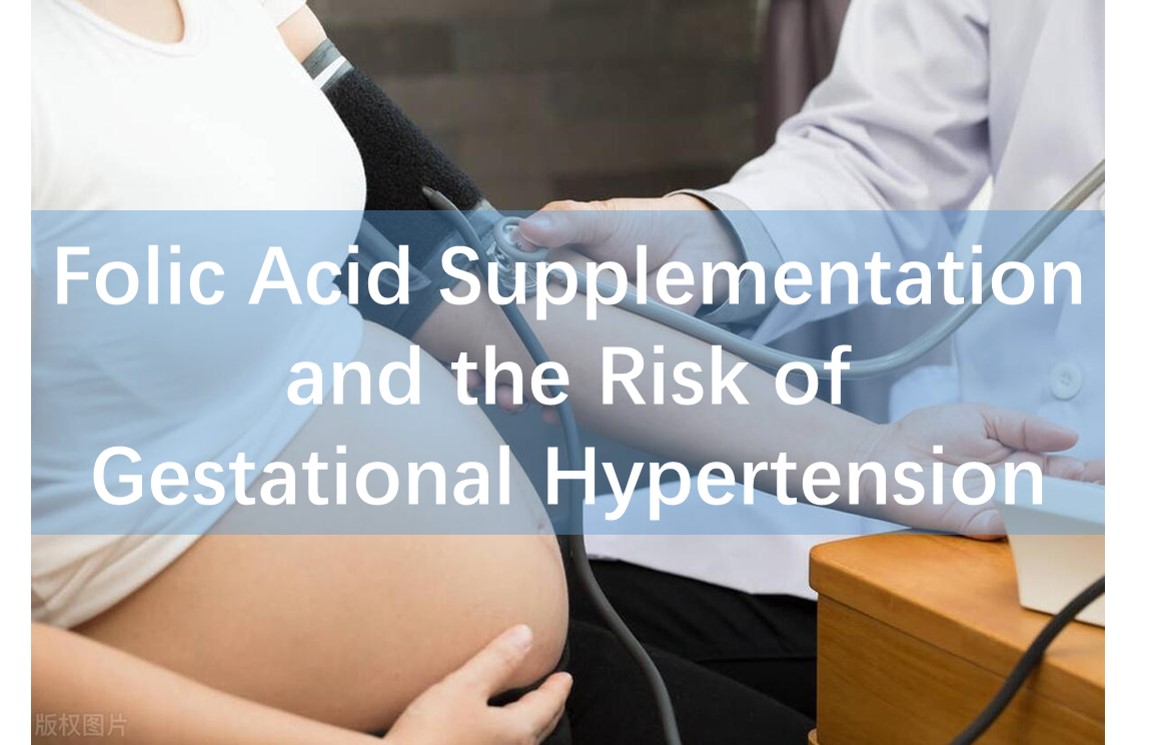
In July 2020, a team of researchers from Tongji Medical College, Huazhong University of Science and Technology, published a pivotal maternal and child cohort study in the esteemed journal "Hypertension." This study shed light on a possible connection between the use of folic acid supplements and an increased risk of gestational hypertension.
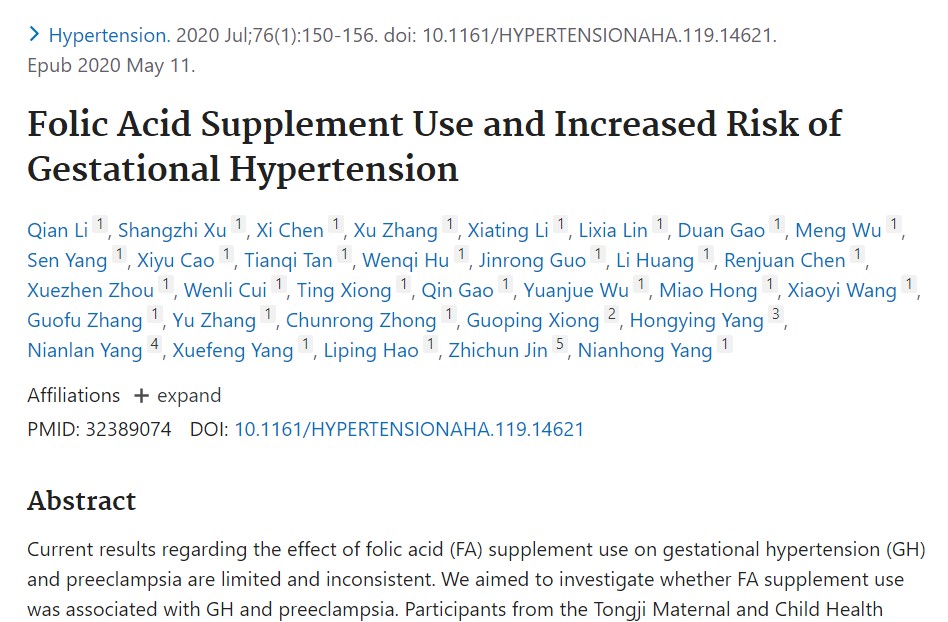
Gestational hypertension is a prevalent complication during pregnancy that poses significant health risks to both mother and child. Gaining a deeper understanding of the factors that may contribute to its development is vital for devising effective preventative and therapeutic measures. Recently, there has been a surge in research focusing on the potential impact of nutrients, especially folate, on blood pressure regulation.

Launched in September 2013, this study employed a prospective cohort design. The researchers enrolled 4,853 pregnant women within the first 16 weeks of gestation and meticulously tracked their folic acid supplement intake. Over a four-year period, the team monitored these women for the development of gestational hypertension and preeclampsia.
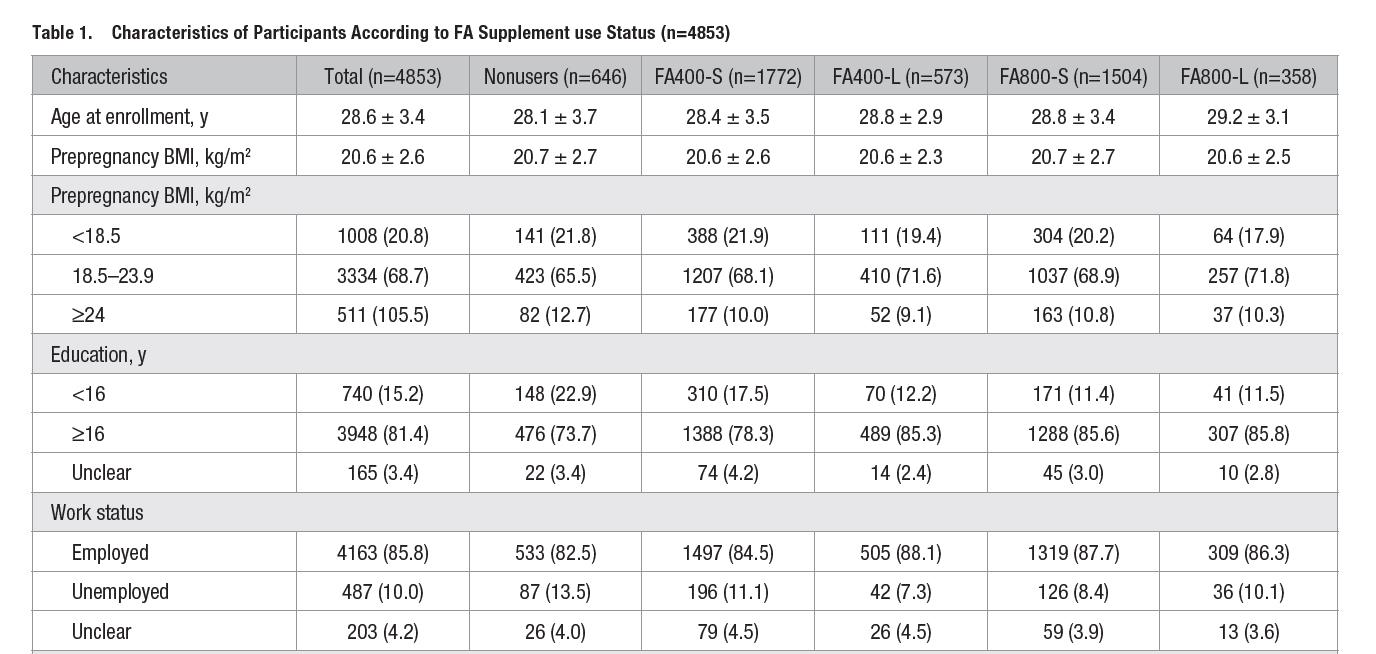
By comparing the incidence of gestational hypertension among users and non-users of varying doses of folic acid supplements, the team identified a significant association between high-dose folic acid and an elevated risk of gestational hypertension. Specifically, women who took more than 800 micrograms of folic acid daily from preconception to mid-pregnancy were at a significantly higher risk of developing gestational hypertension compared to those who did not use folic acid supplements (P < 0.05).
The data revealed that women on high-dose folic acid supplements had a risk ratio (RR) of 1.32, indicating a 32% increased risk compared to non-users. This statistically significant finding suggests that high-dose folic acid supplementation could be an independent risk factor for gestational hypertension.
Even after accounting for a range of potential confounding factors, such as sociodemographic characteristics, fertility factors, lifestyle habits, family history of hypertension, use of other supplements, and gestational weight gain, the study continued to show a positive link between high-dose folic acid supplementation (≥800 micrograms/day) and the risk of gestational hypertension.
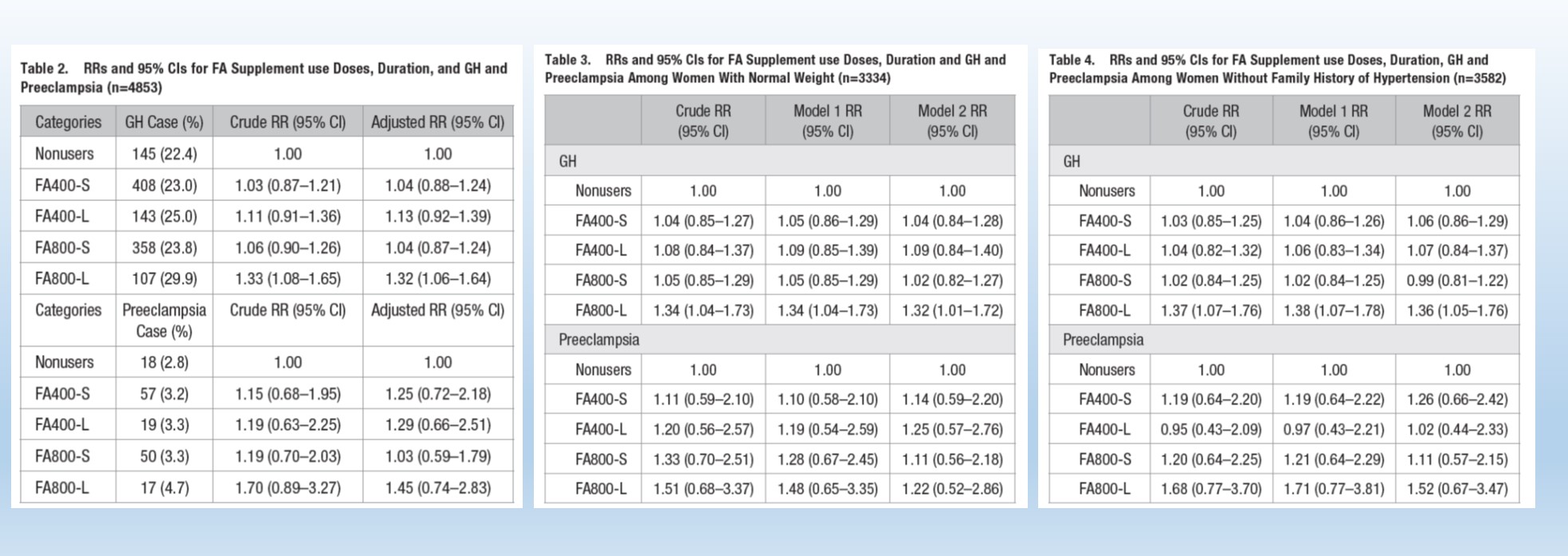
It is important to note that while a daily intake of 400 micrograms of folic acid has been proven effective in preventing neural tube defects, this study's findings indicate that long-term, high-dose folic acid supplementation may increase the risk of gestational hypertension. Therefore, for women planning pregnancy or capable of conceiving, adhering to medical guidance and avoiding excessive folate intake is particularly crucial.
Looking ahead, as scientific research continues to unravel more about the relationship between folate and gestational hypertension, we anticipate further insights. Moreover, additional prospective cohort studies and mechanistic research are necessary to validate these findings and inform the development of more scientifically grounded prenatal nutritional strategies.
References
Li Q, Xu S, Chen X, et al. Folic Acid Supplement Use and Increased Risk of Gestational Hypertension. Hypertension. 2020 Jul;76(1):150-156. doi:10.1161/HYPERTENSIONAHA.119.14621. Epub 2020 May 11.

 Español
Español Português
Português  русский
русский  Français
Français  日本語
日本語  Deutsch
Deutsch  tiếng Việt
tiếng Việt  Italiano
Italiano  Nederlands
Nederlands  ภาษาไทย
ภาษาไทย  Polski
Polski  한국어
한국어  Svenska
Svenska  magyar
magyar  Malay
Malay  বাংলা ভাষার
বাংলা ভাষার  Dansk
Dansk  Suomi
Suomi  हिन्दी
हिन्दी  Pilipino
Pilipino  Türkçe
Türkçe  Gaeilge
Gaeilge  العربية
العربية  Indonesia
Indonesia  Norsk
Norsk  تمل
تمل  český
český  ελληνικά
ελληνικά  український
український  Javanese
Javanese  فارسی
فارسی  தமிழ்
தமிழ்  తెలుగు
తెలుగు  नेपाली
नेपाली  Burmese
Burmese  български
български  ລາວ
ລາວ  Latine
Latine  Қазақша
Қазақша  Euskal
Euskal  Azərbaycan
Azərbaycan  Slovenský jazyk
Slovenský jazyk  Македонски
Македонски  Lietuvos
Lietuvos  Eesti Keel
Eesti Keel  Română
Română  Slovenski
Slovenski  मराठी
मराठी  Srpski језик
Srpski језик 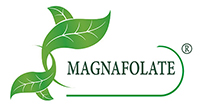




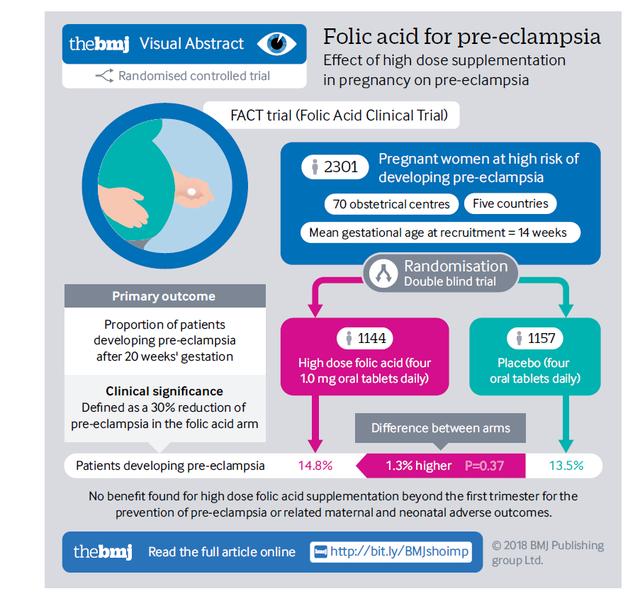



 Online Service
Online Service